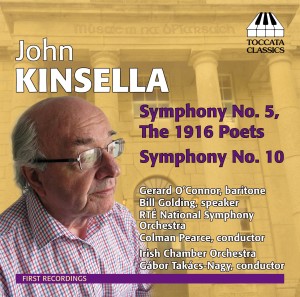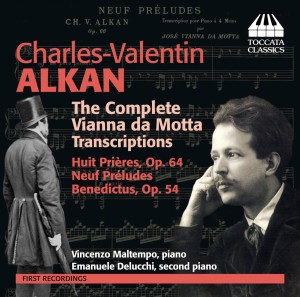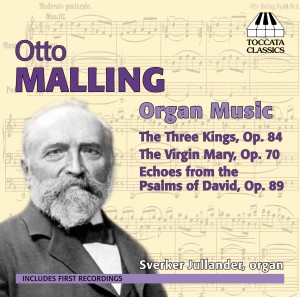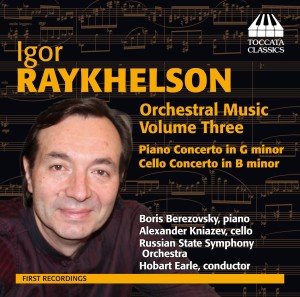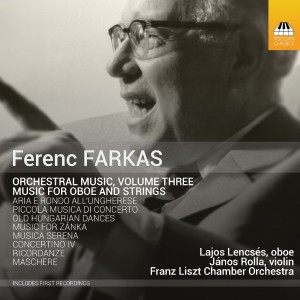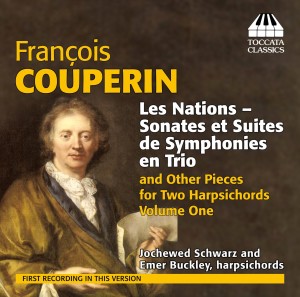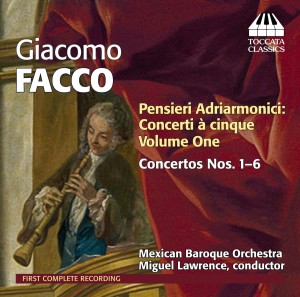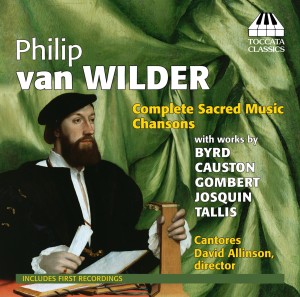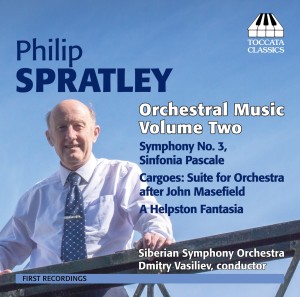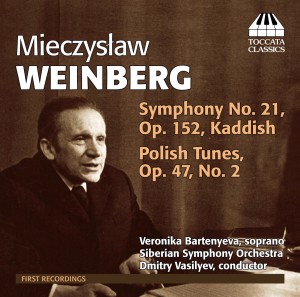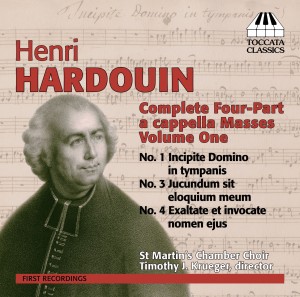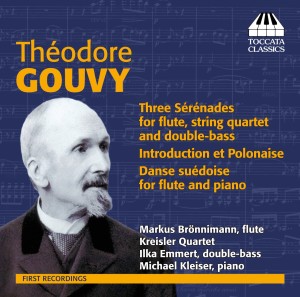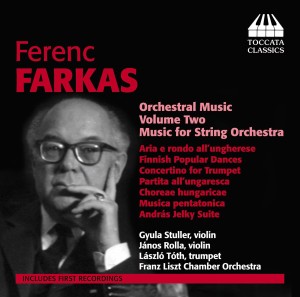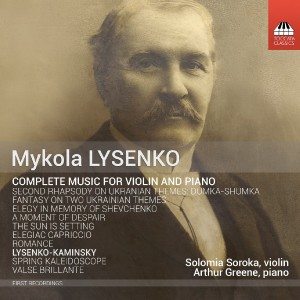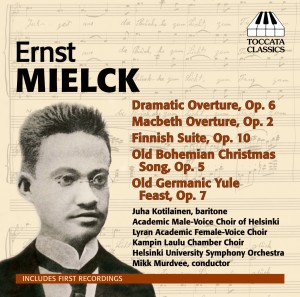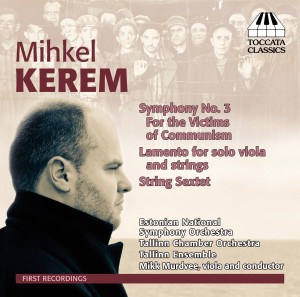Search Results for "Space Wolf: The First Omnibus mp3 torrent" – Page 42
John Kinsella: Symphonies
John Kinsella (b. 1932) is the most important Irish symphonist since Stanford, with no fewer than ten to his credit. This CD couples Kinsella's Fifth Symphony, written in 1992, an impassioned setting of humanist poetry by three Irish poets killed in the 1916 Uprising, with his most recent, No. 10, composed in 2010 for an orchestra of Mozartean dimensions, its clear textures animated by driving power and energy.
Gerard O’Connor, baritone
Bill Golding, speaker
RTÉ National Symphony Orchestra, orchestra
Colman Pearce, conductor
Irish Chamber Orchestra, chamber orchestra
Gábor Takács-Nagy, conductor
Charles-Valentin Alkan: The Complete Vianna da Motta Transcriptions
The Portuguese piano virtuoso and composer José Vianna da Motta (1868-1948) understood the importance of Alkan's music long before its current rise to prominence and made a number of transcriptions to foster its performance, arranging eight of the organ Priéres for solo piano and some of the music for pédalier — the obsolete pedal-piano — for piano duo and duet.
Vincenzo Maltempo, piano
Emanuele Delucchi, piano
Otto Malling: Organ Music
Otto Malling (1848-1915) was a central figure in Danish musical life, as composer, conductor, pianist, organist, administrator and teacher. His substantial output of organ music was cast in the form of suites of 'mood pictures' inspired by the Bible. The range of emotions it encompasses is correspondingly wide, from the languidly romantic to the fierily epic, in a language which is at all times dignified and direct.
Sverker Jullander, organ
Igor Raykhelson: Piano Concerto; Cello Concerto
A Fanfare review described Igor Raykhelson's music — in the Toccata Classics release of his Violin and Viola Concertos — as 'a world of unreconstructed and unapologetic Romanticism'; two customer reviews on Amazon wrote of 'beautiful music that draws me into another zone' and 'a delicate, airy beauty that is unique in modern classical music'. Raykhelson's concertos for piano (2007) and cello (2010), written for the two soloists on this recording, maintain the emphasis on a melodic language with its roots in the music of Rachmaninov and Prokofiev.
Boris Berezovsky, piano
Alexander Kniazev, cello
Russian State Symphony Orchestra, orchestra
Hobart Earle, conductor
Ferenc Farkas: Orchestral Music, Volume Three — Music for Oboe and Strings
This third release in a series of recordings of orchestral music by the Hungarian composer Ferenc Farkas (1905-2000) — this time featuring works for oboe and strings — highlights the characteristics that make his music so appealing: catchy tunes, transparent scoring, buoyant rhythms and a fondness for Baroque forms and folk-dances. Two chamber pieces featuring the oboe and cor anglais offer textural contrast.
Lajos Lenscés, oboe
János Rolla, violin
Franz Liszt Chamber Orchestra
François Couperin: Music for Two Harpsichords, Volume One
François Couperin published two collections of chamber music — the Concerts Royaux in 1722 and Les Nations in 1726 — in what today would be called open scoring, so that they could be performed by whatever instruments were to hand. But he confessed in the preface to a later publication that he himself preferred to perform them on two harpsichords, although that suggestion had to wait for this series of two CDs to be taken up in a recording. Here Les Nations and movements from the Concerts Royaux are presented with a number of his Pièces de clavecin, also in rarely heard realisations for two harpsichords.
Jochewed Schwarz, harpsichord
Emer Buckley, harpsichord
Giacomo Facco: Pensieri Adriarmonici: Concerti à cinque, Volume One
Giacomo Facco (1676-1753), born near Venice, was active in southern Italy as violinist, choirmaster and teacher before his appointment to the Spanish royal court around 1720. Although highly esteemed in his own time, particularly as a composer of vocal music, Facco had disappeared from musical history until a set of his twelve Pensieri Adriarmonici — concertos for three violins, viola, cello and basso continuo — were discovered in a Mexican library in 1962. Bright and buoyant, they have much in common with the music of Vivaldi, Albinoni, Marcello and Facco's other Venetian contemporaries — but are here given a distinct twist with a basso continuo of vihuela and guitarrón, as they might have been performed in eighteenth-century Mexico.
Manuel Zogbi, violin
Mexican Baroque Orchestra, chamber orchestra
Miguel Lawrence, director
Philip van Wilder: Complete Sacred Music Chansons
Philip van Wilder (c.1500-54) was a Dutch lutenist and composer who became Henry VIII's favourite musician, and yet he has passed almost unnoticed from musical history. This recording presents his complete surviving sacred music and some of his chansons and sets him in historical context: downstream from Josquin and Gombert, collaborating with Tallis and a formative influence on Byrd.
Cantores Chamber Choir, choir
David Allinson, director
Philip Spratley: Orchestral Music, Volume Two
This second Toccata Classics recording of music by Philip Spratley, born in Nottinghamshire in 1942, opens with the atmospheric orchestral suite Cargoes, inspired by John Masefield's famous poem, and continues with a sparkling folksong medley based on fiddle tunes by another poet, John Clare. The main work here, Spratley's Third Symphony, which had its initial impulses in visits to North Wales and Jerusalem, traces a path from tension to triumph.
Siberian Symphony Orchestra, orchestra
Dmitry Vasilyev, conductor
Mieczysław Weinberg: Music for Orchestra
Mieczysław Weinberg, born in Warsaw in 1919, became a close friend of Shostakovich in Moscow, after fleeing eastwards before the invading Nazis in 1939. His style has much in common with Shostakovich's: fluent contrapuntal skill, a keen feeling for melody, often inflected with Jewish cantilena, and an acute sense of drama which combines a natural narrative manner with an extraordinary ability to create atmosphere. Since his death in 1996, his vast output — which includes 26 symphonies, seven operas and seventeen string quartets — has enjoyed increasing recognition as some of the most individual and compelling music to have been composed in the twentieth century. This recording pairs an early orchestral work, the suite Polish Tunes of 1950, with the last full orchestral symphony he was to complete, dedicated to the memory of those who died in the Warsaw Ghetto.
Veronika Bartenyeva, soprano
Siberian Symphony Orchestra, orchestra
Dmitry Vasilyev, conductor
Henri Hardouin: Complete Four-Part a cappella Masses, Volume One
Henri Hardouin (1727-1808) was a chorister in Rheims Cathedral, rising swiftly through the ranks to become maître de chapelle — until the French Revolution disbanded religious establishments. As a priest he was in potential danger and seems to have gone into hiding until, in 1794, the death of Robespierre allowed him to resume his duties. Hardouin's six four-part masses, published in 1772, are unusual for their time in being a cappella, and they enjoyed wide circulation in pre-Revolutionary France. Since then they have been roundly neglected — an omission this two-CD survey intends to rectify.
St. Martin’s Chamber Choir
Timothy J. Krueger, conductor
Théodore Gouvy: Sérénades for Flute and Strings
The rediscovery of the three Sérénades for flute and strings by the Franco-German Romantic Théodore Gouvy (1819-98) — two of them commissioned by the Philharmonic Club of New York — brings a welcome expansion to the repertoire of nineteenth-century chamber music for flute. Gouvy's charming melodic language disguises the expert craftsmanship of a composer who, not belonging to any national school, has not had the attention his warm-hearted music deserves.
Markus Brönnimann, flute
Kreisler Quartet, string quartet
Ilka Emmert, double-bass
Michael Kleiser, piano
Ferenc Farkas: Orchestral Music, Volume Two
This second release in a series of recordings of orchestral music by the Hungarian composer Ferenc Farkas (1905-2000) — this time featuring works for strings — highlights the characteristics that make his music so appealing: catchy tunes, transparent scoring, buoyant rhythms and a fondness for Baroque forms and folk-dances.
Gyula Stuller, violin
János Rolla, violin
László Tóth, trumpet
Franz Liszt Chamber Orchestra, chamber orchestra
Mykola Lysenko: Complete Music for Violin and Piano
Mykola Lysenko (1842-1912) is regarded as 'the father of Ukrainian classical music'. As did Bartók later in Hungary, he went out into the field, listened to what the people were singing and fashioned an individual musical language that brought together the styles of Chopin and Liszt and the essence of Ukrainian folksong. This CD presents his complete output of music for violin and piano, complemented by a new work for violin and piano commissioned to display the lyrical riches of Lysenko's songs.
Solomia Soroka, violin; Arthur Greene, piano;
Ernst Mielck: Orchestral and Choral Works
The early death of the Finnish composer Ernst Mielck, in October 1899, two days before his 22nd birthday, robbed music of an extraordinarily gifted musician — he was also a fine pianist — and perhaps one of the major voices of the next generation: the rapid evolution in his language in the three years covered by this CD is striking. The two overtures and cantatas make clear that he was already a gifted composer in the post-Schumann Romantic tradition, and the Finnish Suite written in the last year of his life brings a striking simplification of his textures and what seems to have been a nascent nationalism.
Juha Kotilainen, baritone
Academic Male-Voice Choir of Helsinki, choir
Lyran Academic Female-Voice Choir, choir
Kampin Laulu Chamber Choir, choir
Kari Turunen, chorus-master
Helsinki University Symphony Orchestra, orchestra
Mikk Murdvee, conductor
Mihkel Kerem: Orchestral and Chamber Music
The Estonian violinist Mihkel Kerem (born in Tallinn in 1981) is familiar as a performer in Britain as well as at home; he is also a prolific composer, with over one hundred works to his credit, three symphonies among them. The three-movement Third (2003) and the Lamento for viola and strings (2008-9) lie downstream from Shostakovich and Boris Tishchenko, whereas the String Sextet (2004), cast in a single half-hour span, has its musical starting-point and initial poetic impulse in Schoenberg's Verklärte Nacht but also manifests the polyphonic lyricism of Strauss' Metamorphosen. All three works are concerned with the expression of human emotions in music, in the Third Symphony and Lamento with the struggle of the individual voice against oppressive ideology.
Estonian National Symphony Orchestra, orchestra
Tallinn Chamber Orchestra, chamber orchestra
Tallinn Ensemble, ensemble
Mikk Murdvee, viola, conductor
Stay In the Know
JOIN THE TOCCATA NEWSLETTER
"*" indicates required fields
By visiting our site, you agree to our privacy policy regarding cookies, tracking statistics, etc.
